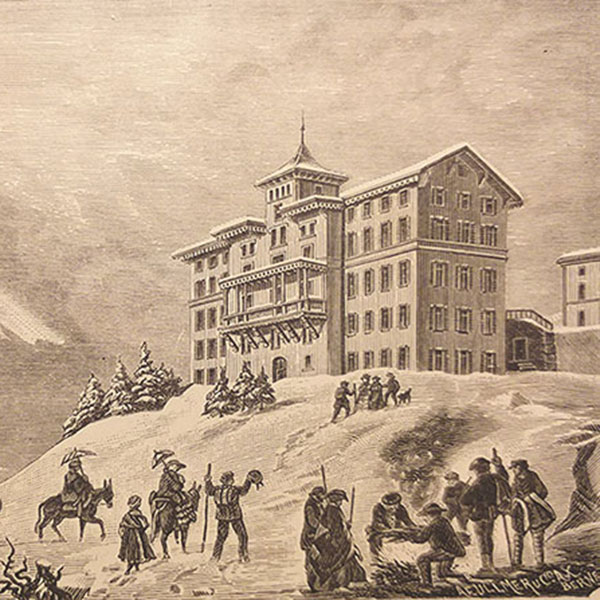Books for a hot summer
Whether poetry, thrillers or a diary – science can also entertain us. Horizons has reviewed the newest Swiss books that have an added dose of research in them. This mixture of lab stories, novels about clever people and laid-back comics offers good holiday reading for everyone.
Onward in retrograde
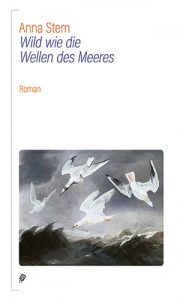
Anna Stern:
Wild wie die Wellen des Meeres
Salis-Verlag 2018
The protagonist Ava Garcia is centre-stage here. She’s a mysterious young woman who likes birds more than people. Her story moves forward along one narrative thread; Ava is on the run from her life and from Paul, living on a remote research station in Scotland. She settles down well in her new life in this barren environment. She does her research, goes walking, has an affair. In the in-between chapters, her life is told in reverse, back to a traumatic childhood experience that even put her eyes out of balance. One has remained ‘duck-green’, while the other has turned grey.
This is already the fourth book by Anna Bischofberger, alias Anna Stern – a 29-year-old author and natural scientist. She takes several risks, spinning the reader round both in her chronology and in her language. Her rhythm and style constantly shift direction. Whole passages relate daily routines almost as if she were writing a report – one sober clause follows another, repetitively. But then she squeezes several tropes into a single sentence, as when windows become “empty spaces, holes in the night”, or when stars “dot the heavens like the footprints of a sandpiper”. And she adds photos, handwritten notes and phrases from English songs to her text.
This novel actually has too much of everything – secondary characters, details, pages. Nevertheless, its sheer originality means it exerts a strange pull of its own. Like the sea. sp
Exploring utopian radicalness
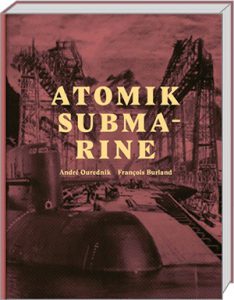
André Ourednik and François Burland:
Atomik Submarine
fiction 2018
Eight years later, André Ourednik’s Atomik Submarine gave a literary form to the submersible. It is both literary and absolutely outlandish, in terms not only of its wild adventures but also of its bizarre language with anarchic-futuristic connotations. Illustrating the text in a very beautiful large format edition are further echoes of these characteristics found in Burland’s surreal collages of rockets, zeppelins, underwater divers, and an amputee Eiffel Tower.
This ‘Ark of Utopia’ narrates its own Odyssey through the voices and frozen words (think Rabelais) of the ‘mužiks’ passengers, who have been pulled straight from the primordial chaos by three Promethean lunatics. The thick intertextuality portrays a host of other figures including Gilgamesh, Jonas, Tinguely, Moby Dick, Nietzsche, and not to mention the Soviet superhero Oktobriana.
Could this modern Noah’s Ark succeed in bringing about a radically different reality? It has the means, bearing all the technical, poetic and literary virtuality imaginable, and that’s not to mention its absurdity. The answer is actually obvious: the subversive submarine is just a metaphor for the larger work, a virtual machine from which we can dig, perforate and atomise all our conventional representations. With its eminent experimentalism, this is a book for any wise scientist. jfd
As if you were dreaming
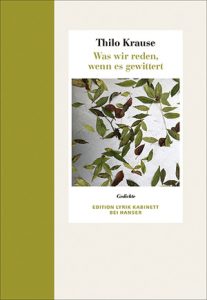
Thilo Krause:
Was wir reden, wenn es gewittert
Carl Hanser Verlag 2018
The adventures of a DNA strand
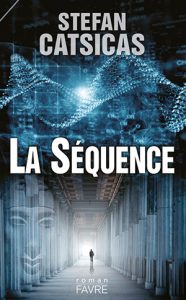
Stefan Catsicas:
La Séquence
Favre 2018
The author of ‘The Sequence’, Stefan Catsicas, was a professor of cellular engineering at EPFL and a manager at Nestlé. His first novel, a thriller combining science, mythology and spirituality, addresses major questions, including the origin of humanity, the role of the innate and the acquired, the transition from polytheism to monotheism. He proposes a thesis: our genes influence both behaviour and religious questions. The book moves between hard science and science fiction, freely adapting the proven scientific theories on which it is based. It remains essentially a thrilling adventure novel, but avoids the genre’s usual style completely. zs
Murder, poison and Shakespeare
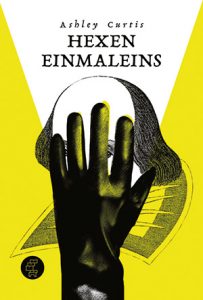
Ashley Curtis:
Hexen Einmaleins
Kommode Verlag 2019
The characters in Curtis’s novel all inhabit an ivory tower of literary scholarship. But he has a fine feel for British humour, excitement is guaranteed, and there are enough protagonists to go round. What’s more, Curtis depicts professors as erotic and capricious – as befits a novel entitled Hexeneinmaleins – the ‘witch’s magic formula’. fs
The forests that kill
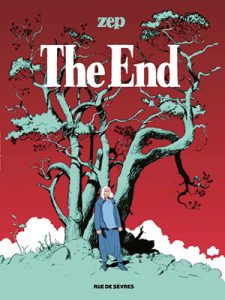
Zep:
The End
Rue de Sèvres 2018
This ‘plant intelligence’ may sometimes be contested (e.g., by the biologist Francis Hallé, whom Zep uses as a model), but it allows him to develop a highly symbolic story, featuring botanists confronted with an apocalypse orchestrated by trees. It’s a graphic warning set to the tune of the eponymous song by The Doors. bs
Brain without a body
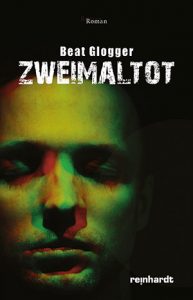
Beat Glogger:
Zweimaltot
Reinhardt 2019
In ‘Twice dead’, Beat Glogger weaves together people, radical animal protectionists and gruesome science fiction to create a gripping story. The only flaw in his book is that Glogger – a science journalist – keeps trying to put facts across. That seems unnatural, especially in Tina’s soliloquies. Such as when she asks whether Frank can think, despite being paralysed in his arms and legs. “Even after an amputation, patients feel pain in the limb they no longer have. They call it phantom pain”. ff
Exploded visions of the digitised conscience
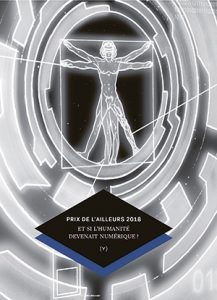
Prix de l’Ailleurs 2018:
Et si l’humanité devenait numérique ?
Hélice Hélas 2018
It is definitely fiction in that it thinks the unthinkable, nurtures our abused humanity and shines a light back on the irrational. jb
Unexpected love in Istanbul
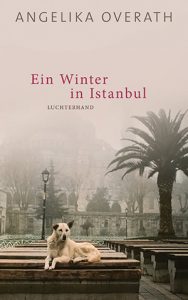
Angelika Overath:
Ein Winter in Istanbul
Luchterhand 2018
Reflections of a hitting spirit
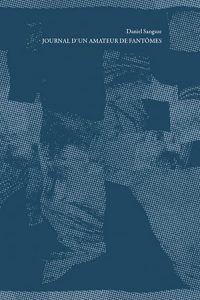
Daniel Sangsue:
Journal d’un amateur de fantômes
La Baconnière 2018
The author expresses his concern about a society in which “the supernatural is no longer taken seriously”, in which the booksellers dear to his heart give way to ‘ghostly’ virtual bookshops and in which the “slow science” essential to his work has imposed upon it the implacable dictates of modern research: planning, collaboration and productivity measures. Noting the modern manifestations of spiritualism in the 21st century, Daniel Sangsue refuses to let go of a world that, above and beyond tolerating the fantastic, the unexplained, beliefs and intuition, actually cultivates them. ds


